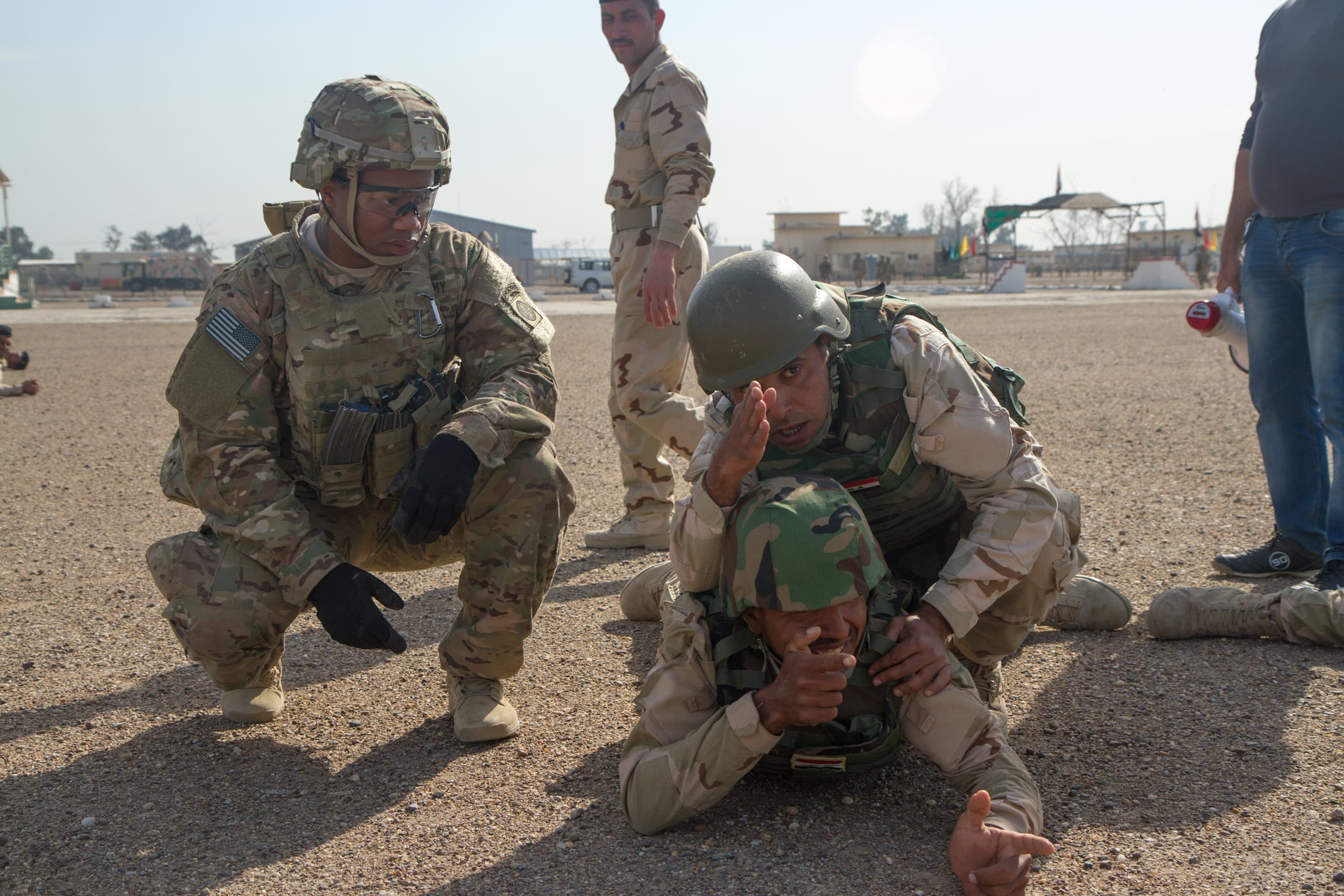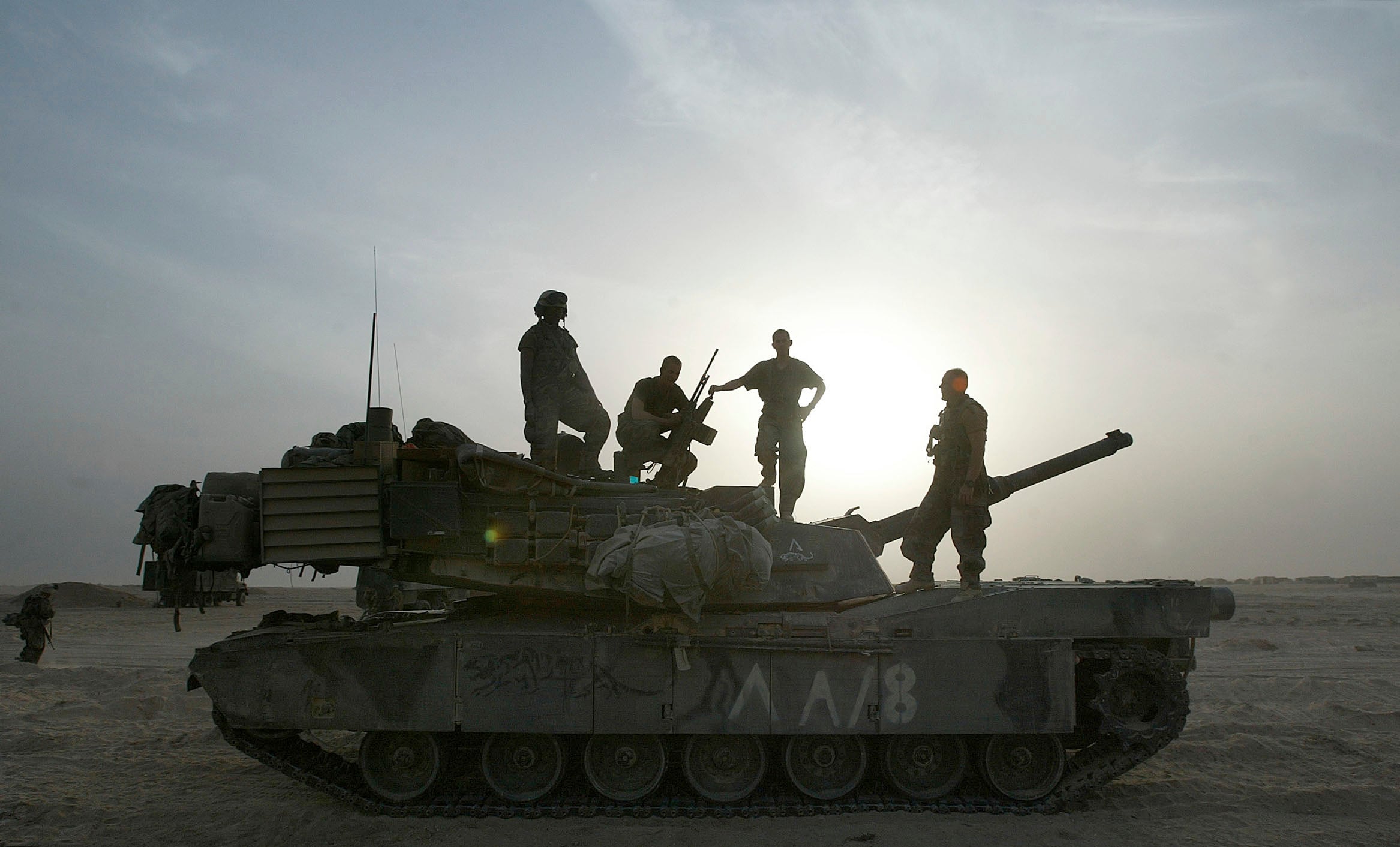Nearly 21 years after the U.S. first invaded Iraq, a decade after American troops returned to beat back ISIS, and seven years after U.S. and Iraqi forces ended the ISIS caliphate, the governments of the United States and Iraq are sitting down to discuss if, when and how the remaining 2,500 U.S. troops will officially leave the country once again.
The so-called Iraq Higher Military Commission convened for the first time Thursday to chart a path forward for U.S. troops there, according to a statement issued by Defense Secretary Lloyd Austin.
The commission will “discuss how the Coalition’s mission to defeat ISIS will transition on a timeline that considers three key factors: the threat from ISIS, operational and environmental requirements, and the Iraqi security forces’ capability levels,” Austin said.
Still, the U.S. and Iraq appeared to begin the talks on different pages Thursday.
A senior U.S. defense official told reporters that the commission’s intention is not to negotiate the withdrawal of U.S. troops from Iraq.
But Iraq’s foreign ministry said in a statement that the country expects to create “a specific and clear timetable that specifies the duration of the presence of the international coalition’s advisors in Iraq, begins the deliberate gradual reduction of its advisors on Iraqi soil [and] end the military mission of the coalition against ISIS,” among other goals.
RELATED

The senior U.S. defense official did not address these apparent differences between the two countries during a briefing with reporters Thursday
The commission kicks off under the specter of not only dozens of attacks on bases housing U.S. troops in Iraq since October, but as Iranian-backed Houthi rebels in Yemen continue to fire on commercial ships in the Red Sea in response to Israel’s war on Gaza, amid Pentagon concerns about Middle East stability and the potential for bad actors to exacerbate the conflicts.
At the same time, Iraqi Prime Minister Mohammed Shia al-Sudani called the U.S. presence in Iraq “destabilizing,” and said in an interview this month that the presence created targets for Iran-backed militias wishing to push the U.S. out.
The recent attacks in Iraq have delayed the commission, the senior U.S. defense official told reporters, as it was originally slated to start late last year, following its announcement in August.
Officials on Thursday could not provide a timeline either for the commission’s work or for any eventual reconfiguring of the U.S. mission in Iraq.
But no one should expect those negotiations to move quickly, according to Jonathan Lord, director of the Middle East security program at the Center for a New American Security
“There’s an old trope that we Iraq analyst hands have, you know: When an Iraqi politician wants to be seen doing something on a difficult issue without actually doing anything? Yeah, they suggest we form a committee,” Lord told Military Times.
Under pressure from Iran-aligned members of his government who want the U.S. out, Sudani appears to be taking a strong public stand with his words, but in a way that doesn’t require any sort of immediate action, Lord added.
Meghann Myers is the Pentagon bureau chief at Military Times. She covers operations, policy, personnel, leadership and other issues affecting service members.




